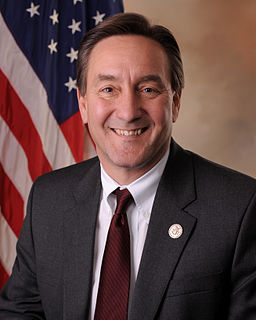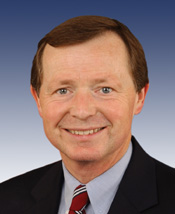| |||||||||||||||||
| |||||||||||||||||
 | |||||||||||||||||
| |||||||||||||||||
| Elections in North Dakota |
|---|
 |
The 2008 election for North Dakota's At-large congressional district took place on November 4, 2008. The incumbent, Democratic-NPL Congressman Earl Pomeroy, was re-elected to his ninth term. Republican Duane Sand formally announced that he was running on March 20, 2008. He previously challenged Pomeroy in 2004.
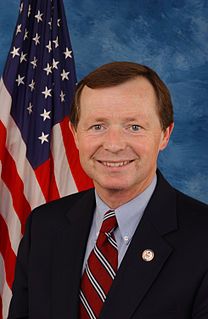
Earl Pomeroy is an American politician who served as the U.S. Representative for North Dakota's at-large congressional district from 1993 to 2011. He is a member of the North Dakota Democratic-NPL Party. He currently works as a health care lobbyist at Alston & Bird.

The North Dakota Republican Party is the North Dakota affiliate of the United States Republican Party. The Party's platform is generally conservative. The North Dakota Republican Party is strongly in control of the state's politics. The Party holds nearly all statewide positions in addition to having a supermajority in both houses of the state legislature, over the North Dakota Democratic-NPL Party. The current party chairman is Rick Berg.
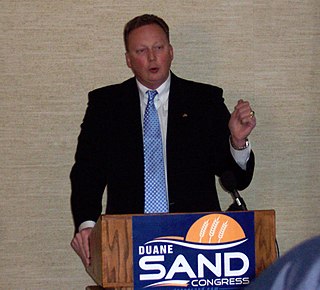
Duane Sand is a Navy Captain, businessman and a North Dakota politician. He is a graduate of the United States Naval Academy, and was a U.S. Navy officer during the Iraq War. Sand ran for the United States Senate in North Dakota on the Republican ticket in 2000 against incumbent Kent Conrad of the Democratic-Nonpartisan League, and was called for duty after the election in 2001. Upon returning, he ran for North Dakota's lone House seat in 2004 and 2008, but failed both times to defeat incumbent Earl Pomeroy. In August 2011, Sand announced his bid to become the 2012 Republican nominee for the same Senate seat he ran for 11 years prior. He lost the Republican nomination to Representative Rick Berg. Sand previously served as the North and South Dakota Director for Americans for Prosperity, a conservative political advocacy group.
Contents
Initial speculation for a Republican challenger included Governor of North Dakota John Hoeven and Attorney General Wayne Stenehjem, who were enjoying very high approval ratings throughout their terms of office. State Representative Kim Koppelman and State House Majority Leader Rick Berg ruled themselves out of the running on February 20, 2008, [2] [3] Another possible challenger was Brian Kalk, who decided to run for Public Service Commissioner and was successful in the November election.

The governor of North Dakota is the head of the executive branch of government of North Dakota and serves as the commander-in-chief of the state's military forces.

John Henry Hoeven III is an American banker and politician serving as the senior U.S. Senator from North Dakota since 2011. A Republican, he served as the 31st Governor of North Dakota from 2000 to 2010. Prior to entering politics, Hoeven was a successful multi-millionaire banker. Hoeven was elected in 2010 to the U.S. Senate, succeeding incumbent Senator Byron L. Dorgan, who chose not to seek reelection. Hoeven became the senior Senator in 2013 after Kent Conrad retired and was replaced by Democrat Heidi Heitkamp, who was once Hoeven's opponent for the Governor's office. Hoeven was reelected in 2016.
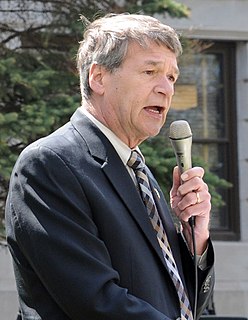
Wayne Stenehjem is an American lawyer and politician from the U.S. state of North Dakota. He is the current Attorney General of the state, serving since January 1, 2001. He sought the Republican nomination for Governor of North Dakota in the 2016 election cycle but lost the Republican primary on June 14 by 20%.
As of 2018, this is the last time that a Democrat won North Dakota's House seat.





